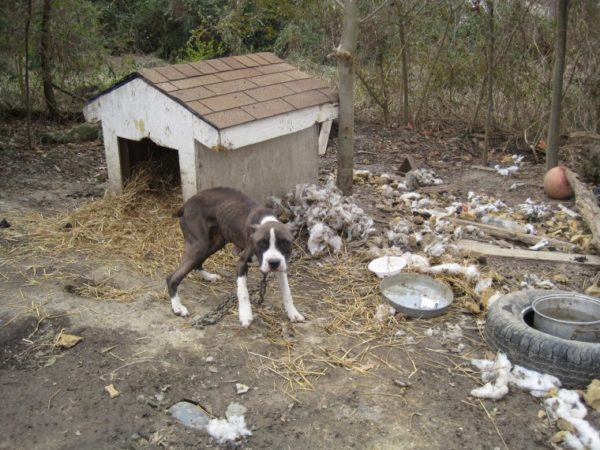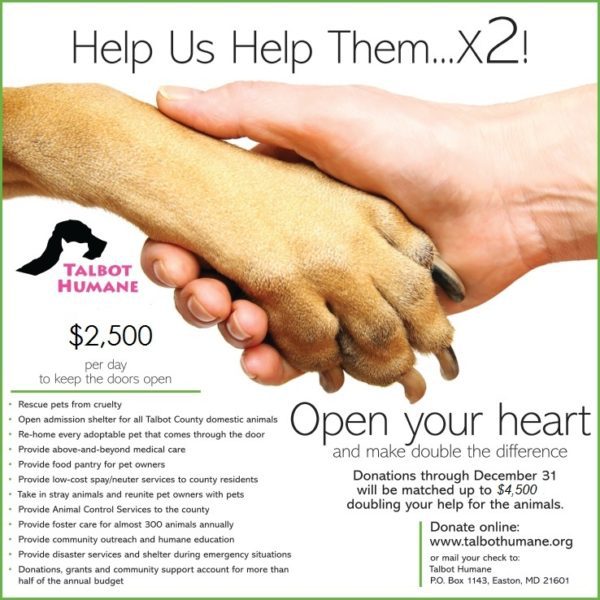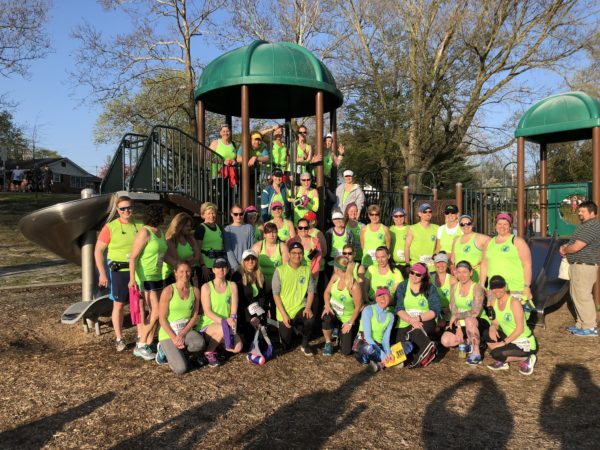Petparazzi!
Welcome to Talbot Humane’s very first calendar photo contest!
You know you have the most beautiful or handsome pet, or one with a personality like no other who always makes you smile or laugh. Well, here’s your chance to show them off! And by sharing your beloved pet’s photo, you are raising funds to support not only the animals of Talbot Humane, but those throughout our community as well. Participation in the contest is not limited to Talbot Humane alum…all pets are welcome!
How does it Work?
It’s easy to participate! Register your pet any time between July 1 and August 16, 2019 (keep in mind that early entrants are likely to get the most votes). Submit your pet’s photo and brief text telling your pet’s story. Your $25 registration fee is considered a tax-deductible donation to Talbot Humane. Each entrant will receive a copy of the Talbot Humane Petparazzi 2020 Calendar, a $15.00 value!
Once your pet is entered and appears on our contest website, it’s time to start encouraging your family, friends, co-workers, etc., to vote early and often for your pet. $1 buys 1 vote ($5 minimum). Spread the word…share your pet’s campaign by email and via social media. People can vote as often as they like and votes will be displayed on the contest web page as they come in. Don’t forget to vote for your pet yourself! Our goal is to raise $10,000+ to help Talbot Humane continue to help the animals of our community.
Prizes
There are 12 full-page opportunities to win. Entries are divided into three categories eligible for prizes: dogs, cats, and other (any other domestic animal such as a bird, reptile, small companion animal, etc.). The top 5 dogs, top 5 cats, and top 2 “other” pets with the most votes in their respective categories will be featured as a Pet of the Month in the 2020 Talbot Humane Petparazzi Calendar. The pet with the most votes overall will be our Grand Prize winner, named Talbot Humane’s 2020 Coverpet of the Year, and will be featured on the cover of the calendar in addition to appearing as a Pet of the Month.
Visit: https://www.gogophotocontest.com/talbothumane to get started or to VOTE for your favorite photos!
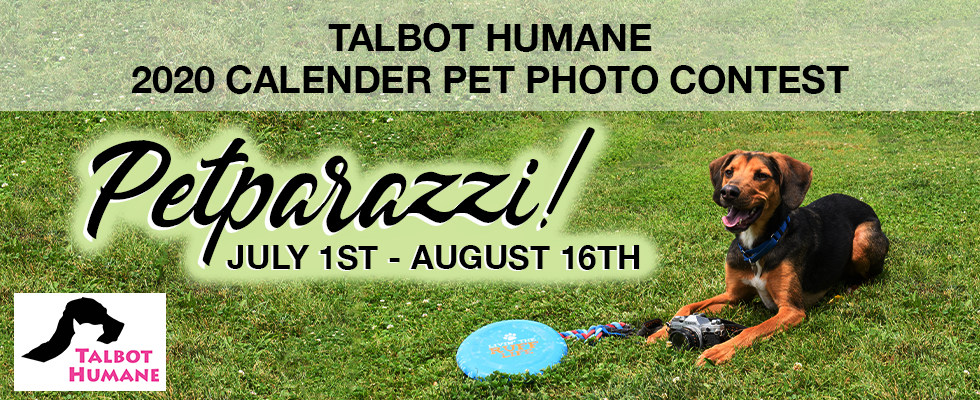


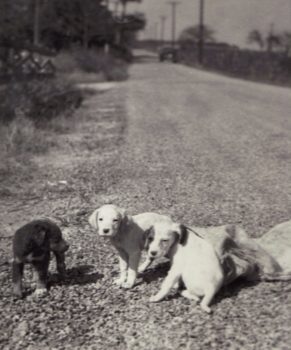
 According to the National Council on Pet Population Study and Policy (NCPPSP), less than 2 percent of cats and only 15 to 20 percent of dogs are returned to their owners. This is a sad statistic, but it’s true! Your dog and cat cannot tell us their name, address or phone number- that is without your help!
According to the National Council on Pet Population Study and Policy (NCPPSP), less than 2 percent of cats and only 15 to 20 percent of dogs are returned to their owners. This is a sad statistic, but it’s true! Your dog and cat cannot tell us their name, address or phone number- that is without your help!
